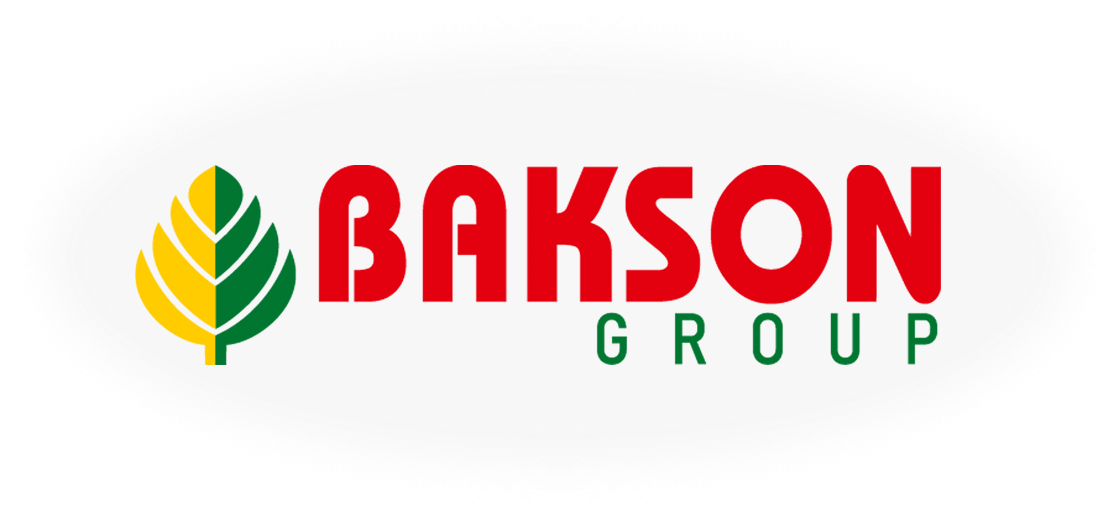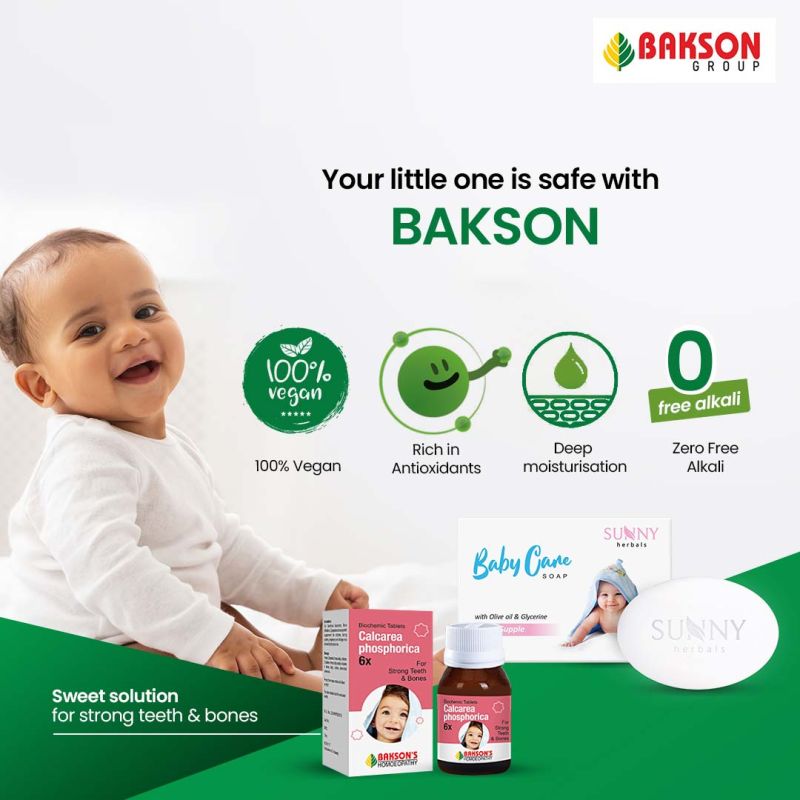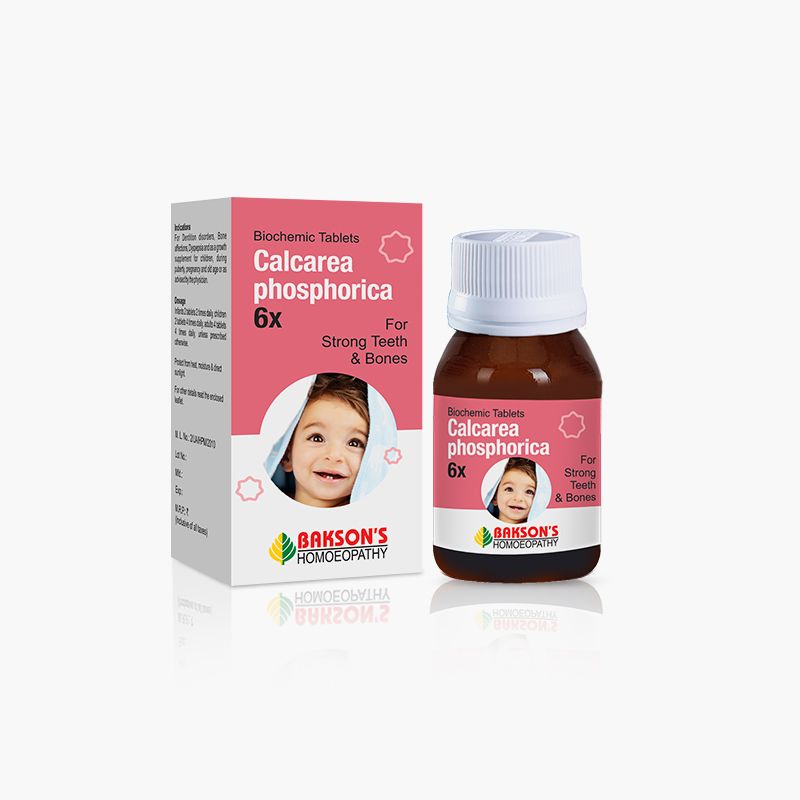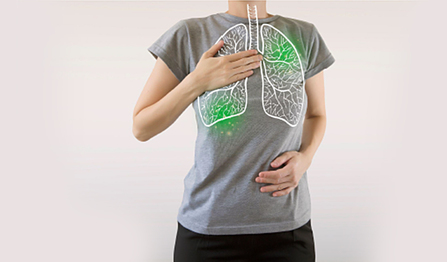We use cookies to make your experience better. To comply with the new e-Privacy directive, we need to ask for your consent to set the cookies. Learn more.
Bakson Calcarea Phosphorica 6x for Baby Bone Health
The framework for healthy bone health throughout life is laid by strong bone formation in childhood - the most crucial period of life when the size and strength of the bones significantly increase. Even though the bone-growing mechanism lasts into the middle of a person's 20s, 90% of a person's peak bone mass is reached by the ages of 18 for females, and 20 for boys. Genetics has a role in determining bone mass, but exercise and a well-balanced diet also have a big influence on the extent to which a child attains their optimum bone density.
In addition to providing structure to the body, protecting numerous organs, forming red and white blood cells, storing vital minerals, and supporting mobility, bones are a stiff organ. At birth, there are around 270 bones altogether in the human body. As the body grows, these bones fuse together, reducing the total to 206 bones in adults, excluding the numerous sesamoid bones. The femur, or thigh bone, is the largest bone, and the stapes, located in the centre of the ear, is the smallest bone.
There are steps you may do to maintain bone strength throughout and after pregnancy as well as to ensure that your baby develops healthy bones. It's crucial to maintain a bone-healthy diet all throughout pregnancy and when nursing. There are programmes that can assist you and your child to consume a diet that is bone-healthy.
IMPORTANCE OF MAINTAINING BABY BONE HEALTH
Bone is a living tissue that evolves over time, with new bone growing in its place as old bone is destroyed. Consider the bone as a bank account where your children can deposit and withdraw bone tissue with your assistance. As the skeleton expands in both size and density during childhood and adolescence, substantially more bone is added than removed. Besides, Youth is the optimum stage for your children to ‘invest’ in their bone health.
Foods that boost bone health:
A) Calcium
One of the common minerals that is abundantly present in bones and teeth is calcium, which is crucial for maintaining the bone mass needed to support the skeletal system. The richest sources of calcium are dairy and dairy products making them great foods to make baby bones strong. Other calcium-rich foods are almonds, tofu, dried fruits, shellfish, legumes, morning cereals, and calcium-fortified beverages.
B) Vitamin D:
The body needs vitamin D to be capable of absorbing and retain calcium and phosphorus -- two essential minerals that are essential for bone growth. Children are more likely to develop rickets, a condition in which the bones grow brittle, if their diet is deficient in this vitamin. The best natural source of vitamin D is sunlight, and foods high in vitamin D include egg yolks, salmon, mushrooms, and milk, juices, and beverages that have been fortified.
C) Magnesium:
Magnesium is a significant mineral that cooperates with calcium to support the development of stronger bones. Additionally, it is essential for supporting the hormone calcitonin, which is in charge of preserving bone structure by returning calcium from soft tissues and the blood to the bones. Additionally, magnesium contributes to the metabolism of calcium.
D) Vitamin K:
In order to activate osteocalcin, a protein that transports calcium from the blood to create a healthy bone matrix, vitamin K is an essential nutrient. Additionally, it helps to build bone density when combined with calcium. Green leafy vegetables, cabbage, cauliflower, eggs, salmon, and meat are a few foods high in vitamin K.
Stay Active: Children who are physically active have stronger bones and are healthier overall. Make sure your child participates in physical activities to strengthen their bones and muscles, such as running, dancing, basketball, tennis, football, and other weight training exercises
Now that you know about the most crucial stages of bone development and nutrient-rich food, take a step ahead in boosting your efforts with supplements. These are additional elements into the diet that complement your purpose and cover up for the missed-out nourishment. Bakson’s Calcarea Phosphorica 6X for babies is a Homeopathic Medicine for Dentition disorders, Bone affections, Dyspepsia, and as a growth supplement for children, during puberty, pregnancy and old age.
So how does Bakson Calcarea Phosphorica 6x improve bone health? It strengthens the body and forms the hard bone mass. It has a positive effect on the cell membrane and is involved in formation of protein. Directions for use: For Infants, 2 Tablets 2 times daily; For Children, 2 tablets 4 times daily, For Adults, 4 tablets 4 time daily-- Or as prescribed by the physician.
HOW TO IMPROVE BONE AND JOINT HEALTH?
Prevention is better than cure, and it all starts with the first step of awareness. Seek complete details and trust in the brands before you use their products. Such as in the case of Bakson, the years of trust and experience that goes hand in hand with their reputation as a reliable brand. Therefore, its solutions such as Bakson’s Calcarea Phosphorica 6x for babies is as effective as one could gauge from their official website, wherein they also engage their consumers in knowledge building. An even better value proposed by Bakson is their Baby Care Kit that is 100% vegan, consisting of both Bakson’s Calcarea Phosphorica 6x – a sweet solution for strong teeth & bones, along with Sunny Herbals Baby Care Soap for nurturing baby’s smooth skin. Baby Care Soap has ZERO free Alkali and has oil & Glycerine for moisturising effects.
Their comprehensive websites encourage transparency by giving the consumers the needed details and also making them aware of other concerned topics to look for. Take the initiative to stay informed and ensure fruitful decision-making. An extra step in the direction of further care is your preparedness for better results











